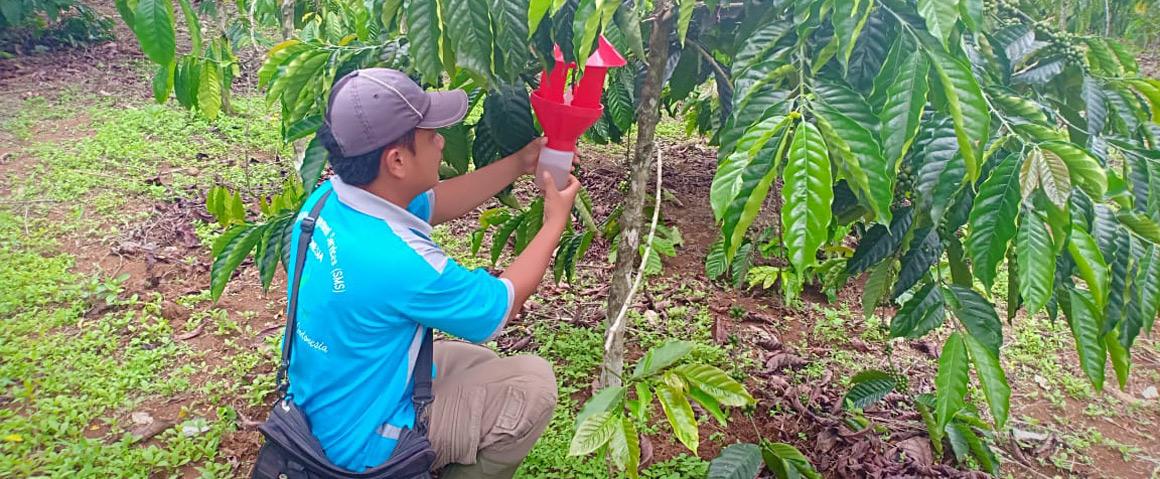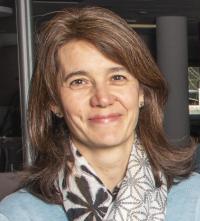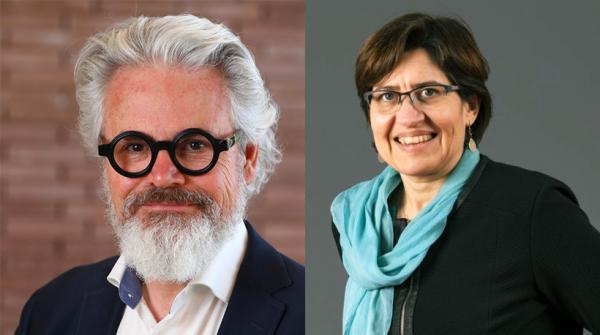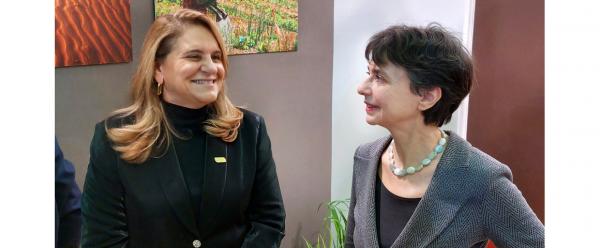Institutional news 4 April 2024
- Home
- CIRAD news
- News
- Creation of a South-North International Innovation Hub
An international hub of innovation support platforms from the South and North is being created

The Brocap® coffee berry borer trap is one solution generated by close collaboration between scientists, makers and a distributor © B. Dufour, CIRAD
A new structure dedicated to innovation is currently emerging in Montpellier with an international focus on the countries of the global South. What are its outlines and its goals?
Lisa Blangy: The overall idea is to create the best possible environment for innovation, by providing innovation support services to developers of innovative entrepreneurial projects in the countries of the global South, or to those targeting these countries. These services will include support for research in the priority fields of the Feed-Care-Protect research organizations in Montpellier. We will also propose technical solutions, access to expertise or skills in change-oriented approaches, and of course entrepreneurial support, when seeking funding, and so on.
All of these services already exist within the Pôle Universitaire d’Innovation (PUI - University innovation centre), created in 2022 and led by the University of Montpellier. What is new about the Hub?
L.B.: The goal is to align the services dedicated specifically to the countries of the global South, which are still too fragmented between different organizations: research and/or higher education institutions (CGIAR, CIRAD, IRD, INRAe, University of Montpellier, Instit Agro, IAMM) and innovation support incubators or structures (Business and Innovation Centre – BIC, Agrovalomed, CapOSud, SATT AxLR, InitiUM). We therefore want to optimize and clarify these services, with all of these organizations, and to deliver them under the umbrella of the MedVallée and CGIAR incubator.
Specifically, what form will this take?
L.B.: In Montpellier, we are currently developing a first platform of support services for innovation with impact in the global South, initially with the creation of a programme aimed at project developers from innovative companies. Underpinning this, our goal is also to support the creation in our territories – in Montpellier and the global South – of innovation actors and high quality jobs around projects that meet the major challenges linked to agriculture, food and environment.
But this platform is just the first stage of a much broader initiative that will take the form of an International Innovation Hub.
How will this future International Innovation Hub be structured?
L.B.: The international hub will bring together groups similar to the Montpellier platform, actors from innovation support ecosystems in the global South, with the same goal of helping to ensure local synergies between the bodies that support innovation: incubators, university outreach services, territorial fab labs, public and institutional actors, etc.
In Montpellier, we regularly receive international delegations who express the same need regarding the structuring of their innovation support and who want find out more about the useful practices in this field. For example, at CIRAD we recently hosted a Cuban delegation, another bringing together universities and incubators from Tanzania, and a delegation from Campus Franco-Sénégalais.
Thus, in addition to project developers, the Montpellier platform will be aimed, also in the countries of the global South, at these innovation actors. It will propose dedicated services in order to first support them in achieving these synergies and sharing practices between the platforms in the different countries.
The Montpellier support will thus be provided on two levels, for innovation actors and for project developers, with two types of services.
We hope to develop an international community of practice based on equitable actions for innovative projects with impact in the global South. The International Innovation Hub, a kind of hub of innovation support platforms, would be the operational manifestation of the services of this community of practice.
What future actions are planned?
L.B.: In addition to creating the international hub, two initiatives to support innovation actors in the global South have already integrated the Montpellier platform.
The first, Idéation Sud, financed in the context of the Pôle Universitaire d’Innovation, is led by CIRAD in partnership with IRD. Its goal, in the exploratory phase, is to establish a collective intelligence process in Senegal as a pilot country. The idea is to bring together companies and scientists from Montpellier and Senegal, as well as local innovation actors. Together, they will be able to share the challenges and implement collaborative research projects to develop solutions to them. For example, concerning the issue of agricultural soil quality, the Biofunctool solution has resulted from this type of collective action.
The idea is to find out more about the socio-economic actors in these territories, and to explore new ways of working with them that are less linear and more inclusive. Typically for new projects, the initial request often comes from the private sector. The scientists work with them to develop a research project based on this need. Thanks to the diversity of the stakeholders involved in the International Innovation Hub, we now aim to ensure a more collective approach centred on territorial scopes specific to the global South. Idéation Sud will also be based on the mapping and prospecting of actors thanks to funding from Satt AxLR.
The second initiative, Innoversity, is implemented in Montpellier by Institut Agro. It involves both incubators and outreach services from universities in Tanzania and entrepreneurial project developers from these universities or incubators who have company projects. We will host them in Montpellier, where they will be able to meet with scientists and to benefit from entrepreneurial support, financing options, exchanges on intellectual property, etc. We will also accompany the Tanzanian incubators in their need for capacity building with a view to being able to support these start-ups in the long-term within Tanzania.
What does the future hold for the International Innovation Hub?
L.B.: In 2023, the Montpellier hub will be designed and launched, and partners will be sought. In October this year, Montpellier will organize an Africa-Europe biennial conference focusing on culture and research. In this context, the Montpellier Jambo Business Network will host a number of young African entrepreneurs, who could have the opportunity to benefit from the IIH services, provided that the subject of their project concerns agriculture, food or environment. Today, a real dynamic is emerging around African entrepreneurs and innovation ecosystems in Africa.
At the same time, we need to identify international actors to begin to structure the international hub network and to work with them to define services that meet shared needs.
In the longer term, the International Innovation Hub aims to become a reference organization for new innovation actors from the global South wishing to integrate the community of practice and for young companies seeking to expand in a new continent.
In terms of positioning, the International Innovation Hub could contribute to strengthening the societal dimension and the link with economic actors from the centres of excellence supported by the European Union in the context of its Global Gateway strategy, in partnership with the African Union. Indeed, these centres associate local academic actors, researchers and NGOs, creating a set of actions and synergies encompassing the scope of the IIH. This would be a real success story for the partners from the global North and South and an additional tool for developing innovative initiatives while ensuring their impact.



























